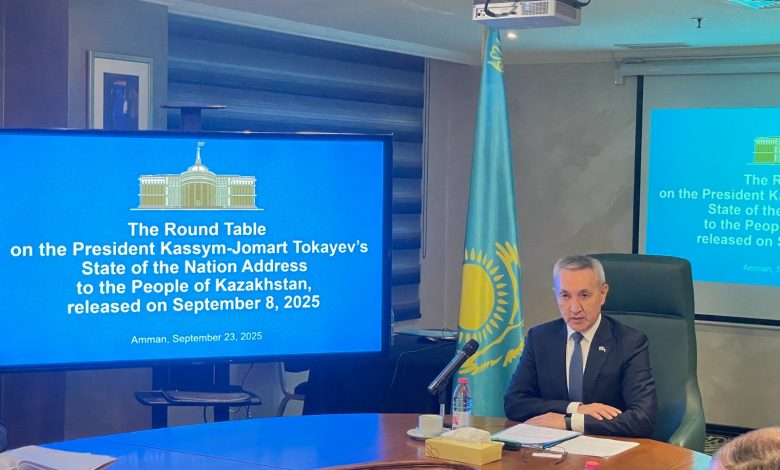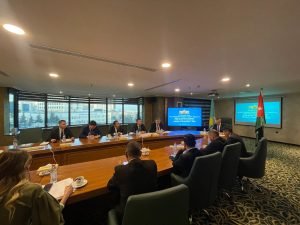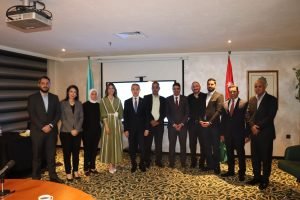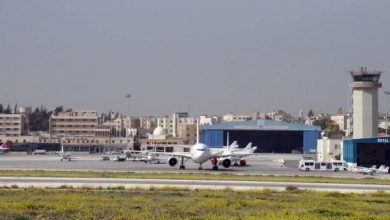
By : Nedal Zubeidi
Jordan Daily – Kazakhstan plans to become a fully digital nation within three years, integrating artificial intelligence across the economy, governance, education and healthcare, Kazakhstan’s Ambassador to Jordan Talgat Shaldanbay said on Tuesday, citing President Kassym-Jomart Tokayev’s annual state-of-the-nation address.
Speaking to media in Amman, Ambassador Shaldanbay highlighted Kazakhstan’s progress in digitalisation, with 96.2% of the population online and the country ranked 10th globally in the UN’s Online Services Index (OSI) in 2024. He noted Kazakhstan also placed 34th in the IMD World Digital Competitiveness ranking and 24th in the UN e-government survey.
Shaldanbay said a new Ministry of Artificial Intelligence and Digital Development had been created, headed by a deputy prime minister, to coordinate the digital transition. Legislation on big data, digital assets and fintech is under preparation, alongside a state digital assets fund and new banking regulations.

Kazakhstan will also launch a supercomputer in July 2025, boosting its capacity in big data, AI and scientific research, the envoy said.
The government aims to attract $1 billion in advanced technology investment, double industrial value-added to $31.5 billion, build up to three nuclear power plants and expand green energy to 6.3 gigawatts, while investing in agriculture, logistics and infrastructure.
Domestically, plans include building the “Alatau City,” restoring farmland, completing 217 schools and upgrading 655 medical facilities. Tokayev has also proposed shifting to a unicameral parliament, with a referendum expected in 2027.

On foreign policy, Shaldanbay underscored Kazakhstan’s commitment to multilateralism and reform of the United Nations Security Council.
Turning to bilateral ties, he said 2025 marked a milestone year in relations with Jordan.President Tokayev made his first official visit to Amman in February, meeting King Abdullah in what Shaldanbay described as an atmosphere of “trust and mutual respect.” King Abdullah visited Astana in August, where the two leaders reaffirmed their commitment to stronger political, economic and investment cooperation.
“The personal friendship and mutual understanding between the leaders form a solid foundation for further development of our relations,” Shaldanbay noted.
A Q&A exchange followed between media representatives, the ambassador and embassy staff.

